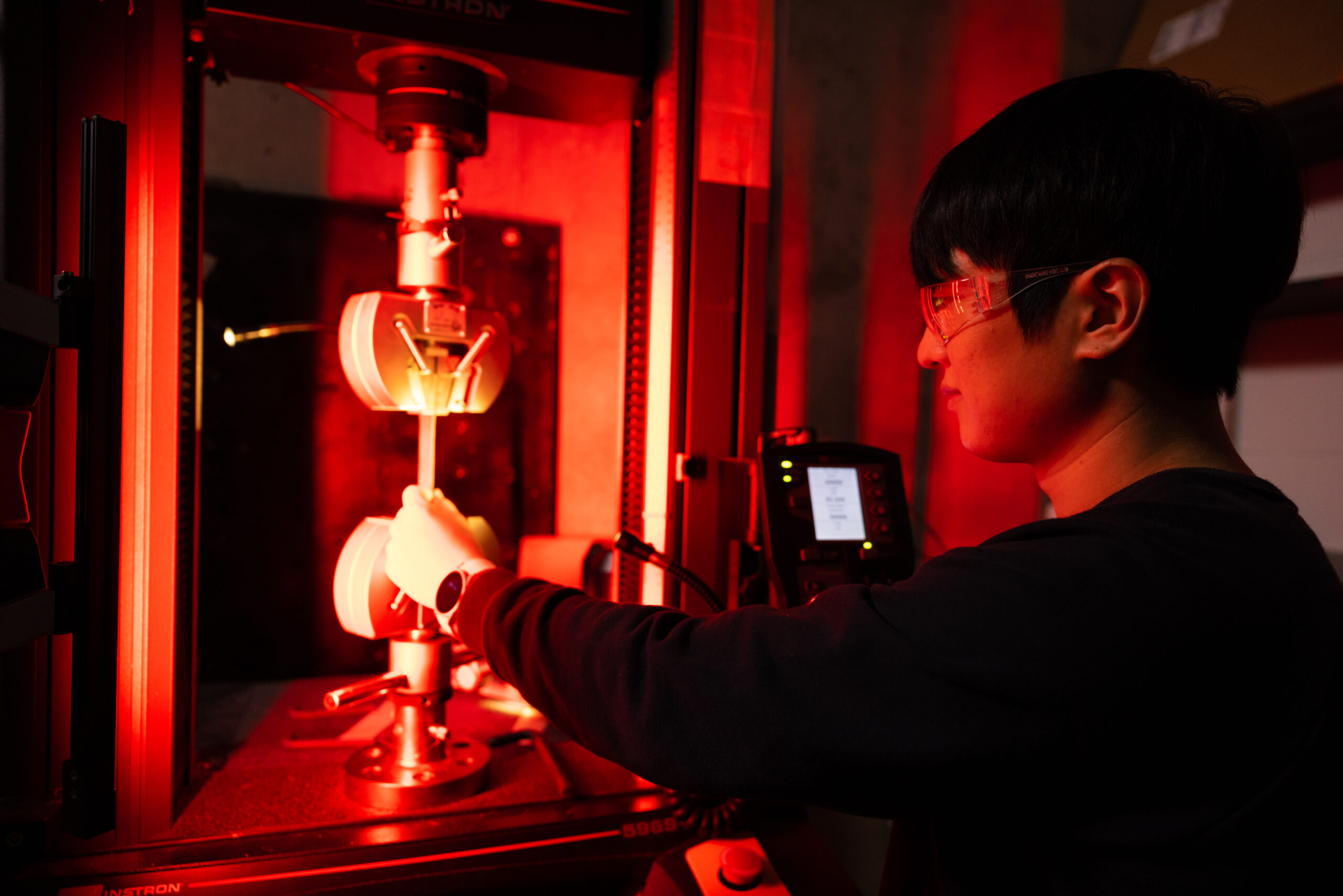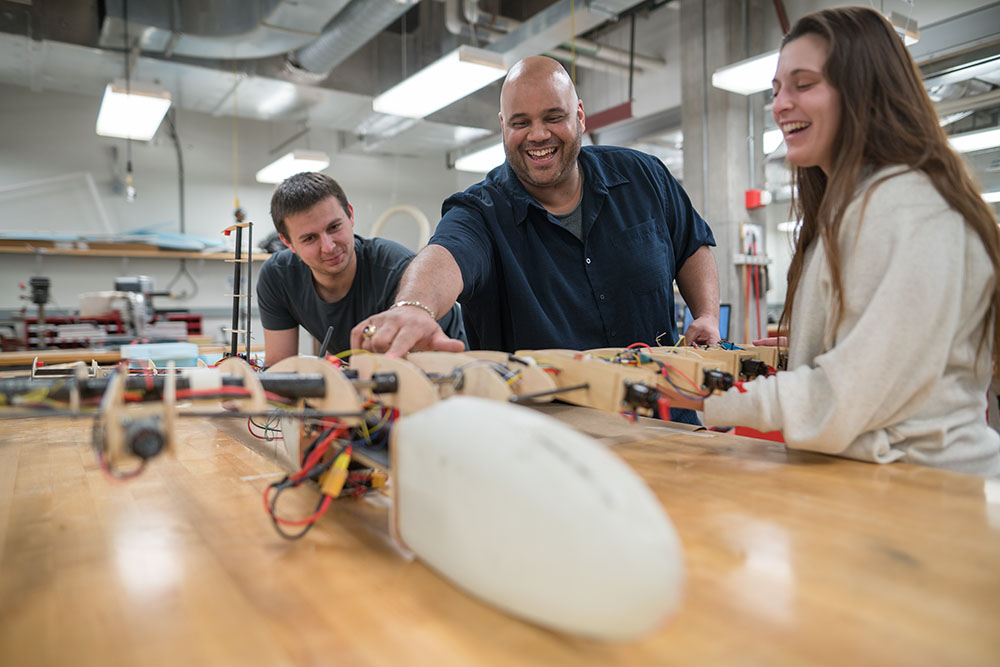Discover Your Passion
Aircraft, astrophysics, autonomous vehicles and more. The sky isn’t our limit—learn engineering fundamentals and discover your potential in designing and building the machines of the future.
We give you the tools, hands-on experience and motivation to guide you into a successful and exciting career. Aerospace engineering prepares you for many types of engineering careers—more than half of our graduate students work in fields that go beyond airplanes and rockets.
The Fundamentals of Aerospace
- Aerodynamics
- Flight Dynamics
- Propulsion
- Structural Mechanics
- Flight Controls
- Design and Systems



